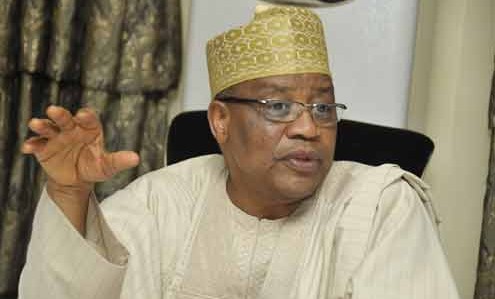Attorney General of the Federation (AGF) and Minister of Justice, Mohammed Bello Adoke (SAN) has urged the Federal High Court sitting in Abuja to stop the suit filed by six civil society groups seeking to compel the Central Bank of Nigeria (CBN) and the AGF to publish the details of the receipt and spending of the $12.4bn oil windfall during the junta of General Ibrahim Babangida.
Judgement on the suit had initially been earmarked for delivery on Friday, but the judge handling the case, Gabriel Kolawole, surprisingly turned up in court only to adjourn the judgement and apologise for several other previous adjournments of the suit.
The latest adjournment — to 29th November 2012 — is the seventh in the series of the suit, spearheaded by the Socio-Economic Rights and Accountability Project (SERAP), since conclusion of hearing in October 2011.
The judge had predicated the last six adjournments on trifling excuses such as typographical errors in the written judgement. But this time, Kolawole apologised that the judgement was not ready and that the AGF had, in fact, served him with a motion challenging the jurisdiction of the court to hear and determine the issues raised by the plaintiffs.
While the adjournment caused confusion among Nigerians who had thronged the court in anticipation of a judgement, Adoke’s move has been adjudged a strategy to frustrate the plaintiffs and the delivery of the judgement.
The suit, instituted under the Fundamental Rights (Enforcement Procedure) Rules 2009, had sought “an order of mandamus compelling the respondents, individually and/or collectively, to publish detailed statement of account relating to the spending of $12.4 billion oil windfall between 1988 and 1994, and to publish in major national newspapers a copy of the statement of account.”
But the AGF has asked the court to dismiss the suit, saying the plaintiffs lack the locus standi to institute and maintain the action in two separate preliminary objections by the AGF and the CBN.
Adoke and the CBN further asked the court to reject the Okigbo panel report, maintaining that it lacks credibility since it was not gazetted and any white paper was not established for it. They argued that the report is, therefore, inadmissible under the law. They equally said they could not find the report, and cannot consequently render account on a nonexistent document.
The groups have unanimously filed a counter-affidavit, challenging the competence of the AGF’s motion to quash the judgement.
The Okigbo report alleged the money to have been mismanaged by the reigning government, which kept it in the “Dedicated and Special Accounts” with the CBN and had depleted it to a mere $200m by June 1994.





